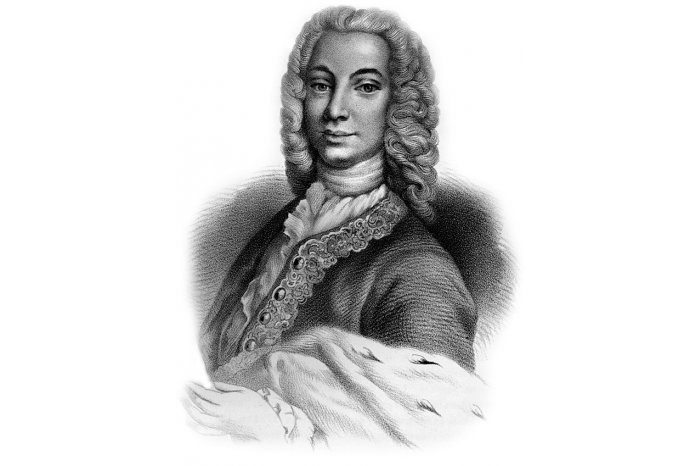Antioh Cantemir, Moldovan representative in European culture
16:52 | 08.02.2021 Category:
One of the brightest minds Moldova gave to the universal culture is the poet, scientist and diplomat Antioh Cantemir, the son of the famous ruler and scientist, Dimitrie Cantemir. Antioh was born in Constantinople, in 1709; his parents were Dimitrie Cantemir and Smaranda Cantacuzino, the daughter of the rule Serban Cantacuzino. From an early age, Antioh was carried by his father to long journeys, from Constantinople to Iasi, then to Kharkiv, Moscow and St. Petersburg. Being an extremely experienced scientist, Dimitrie Cantemir early discovered the special qualities of his son and employed for him famous teachers for their erudition. From an early age, Antioh had courses at the St. Petersburg Academy, where well-known scientists were teaching, who had come from various European countries. The education received in family and the deep studies allowed him to become a perfect polyglot as early as in his youth. He knew well Romanian, Russian, Greek, Latin, Italian, French, Spanish and English. This knowledge gave him possibility to study valuable scientific works in original.
The first prodigious work of Antioh Cantemir was the one of translator. From the young age, he proved a surprising capacity to be exception in terms of philosophy. Antioh was considering that the ‘’light of reason’’ was born out of the deep knowledge of the concept about man and nature. Cantemir was permanently concerned about the moral philosophy and he started writing satire.
Those eight satires represented a true monument of the Russian poetry of the 18th century. Nobody has approached such a sophisticated subject as the moral philosophy in the Russian literature before Antioh Cantemir. The satire fulfills a social duty for the first time ever. The work of young Cantemir was praised in the high scientific society from St. Petersburg.
Antioh Cantemir, with a perfectly structured scientific mind, paid a special attention to the quality of the Russian language and permanently polished up his literary work. Cantemir entered the Russian literature with an extremely impressive force, bringing the depth and splendor of the European culture on the ground of the Russian culture. From now on, during centuries, most anthologies of the Russian poetry were beginning with the work of the already famous Antioh Cantemir.
The exceptional qualities of the young Antioh were quickly noticed by the Russian government. In 1732, at the age of only 22, Antioh Cantemir was appointed Russia’s ambassador to England. Till this appointment, the relations between the Russian Empire and England were oscillating. In just several years, diplomat Cantemir managed to transform the Russian-English relations into stable and predictable ones.
In 1738, he was appointed Russia’s plenipotentiary minister at the French Court. Through his diplomatic talent, Cantemir managed to persuade France to assume the role of mediator in the frequent conflicts between the Russian Empire and the Ottoman Empire. The diplomatic reports by Antioh Cantemir to St. Petersburg are true literary works, as well as proofs of refined diplomatic spirit. Antioh Cantemir continued his cultural concerns in Paris. He tried to know the French scientists of the time, among whom Voltaire.
Antioh Cantemir died in France of an incurable disease on 31 March 1744, at the age of 35. He was buried in Moscow, in the Greek church, nearby his father. The great French philosopher Montesquieu was saying that he doubts whether ‘’Russia will soon have an ambassador endowed with the qualities of Cantemir.’’
The literary work of Antioh Cantemir had a strong imprint on the Russian literature. In 2003 in St. Petersburg, on the occasion of the 300th anniversary of the city’s foundation, a statue to Antioh Cantemir was erected, with the inscription, To the father founder of the Russian classicism and master of the literary satire. Cantemir strongly influenced the Russian literature for many years ahead and is regarded as a generator of ideas and models for the great Russian poetry from the 19th century. The literature from Moldova was deeply marked by the work of Cantemir as well. Writers Alexandru Donici and Constantin Negruzzi were the first considering him their teacher in the literary activity.
Antioh Cantemir was an expression of the vast culture of the Cantemirs – a family of princely offspring from Moldova, as well as a renowned representative of the Russian culture from the 18th century. Undoubtedly, both the Moldovans and the Russians can be proud with the name of Antioh Cantemir; at the same time, his work remained a component part of the European civilization.

